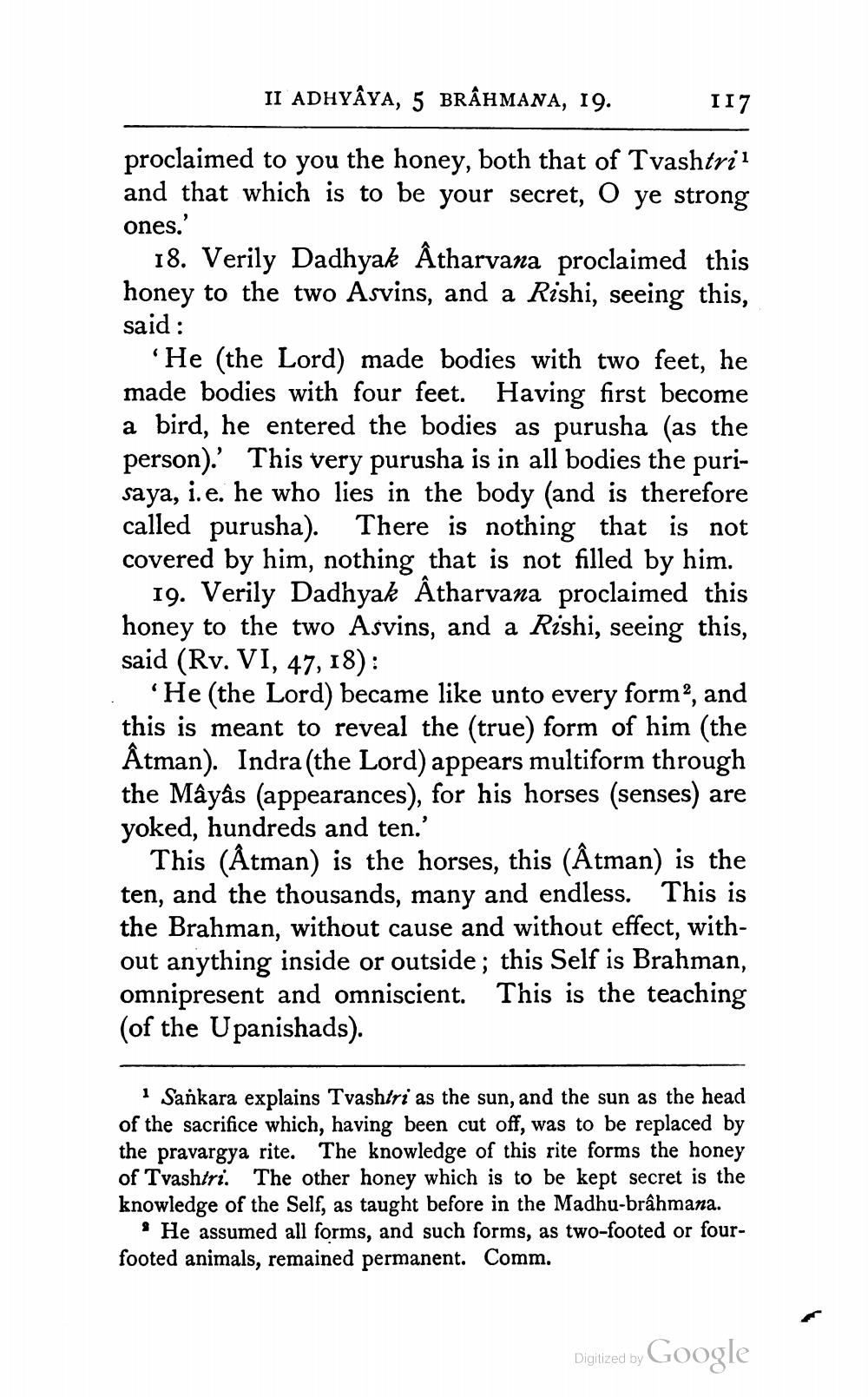________________
II ADHVẬYA, 5 BRÂHMANA, 19.
117
proclaimed to you the honey, both that of Tvashtrii and that which is to be your secret, О ye strong ones.'
18. Verily Dadhyak Atharvana proclaimed this honey to the two Asvins, and a Rishi, seeing this, said:
'He (the Lord) made bodies with two feet, he made bodies with four feet. Having first become a bird, he entered the bodies as purusha (as the person).' This very purusha is in all bodies the purisaya, i.e. he who lies in the body (and is therefore called purusha). There is nothing that is not covered by him, nothing that is not filled by him.
19. Verily Dadhyak Atharvana proclaimed this honey to the two Asvins, and a Rishi, seeing this, said (Rv. VI, 47, 18):
'He (the Lord) became like unto every form, and this is meant to reveal the (true) form of him (the Åtman). Indra (the Lord) appears multiform through the Mâyâs (appearances), for his horses (senses) are yoked, hundreds and ten.'
This (Åtman) is the horses, this (Âtman) is the ten, and the thousands, many and endless. This is the Brahman, without cause and without effect, without anything inside or outside; this Self is Brahman, omnipresent and omniscient. This is the teaching (of the Upanishads).
Sankara explains Tvashtri as the sun, and the sun as the head of the sacrifice which, having been cut off, was to be replaced by the pravargya rite. The knowledge of this rite forms the honey of Tvashtri. The other honey which is to be kept secret is the knowledge of the Self, as taught before in the Madhu-brâhmana.
* He assumed all forms, and such forms, as two-footed or fourfooted animals, remained permanent. Comm.
Digitized by Google




